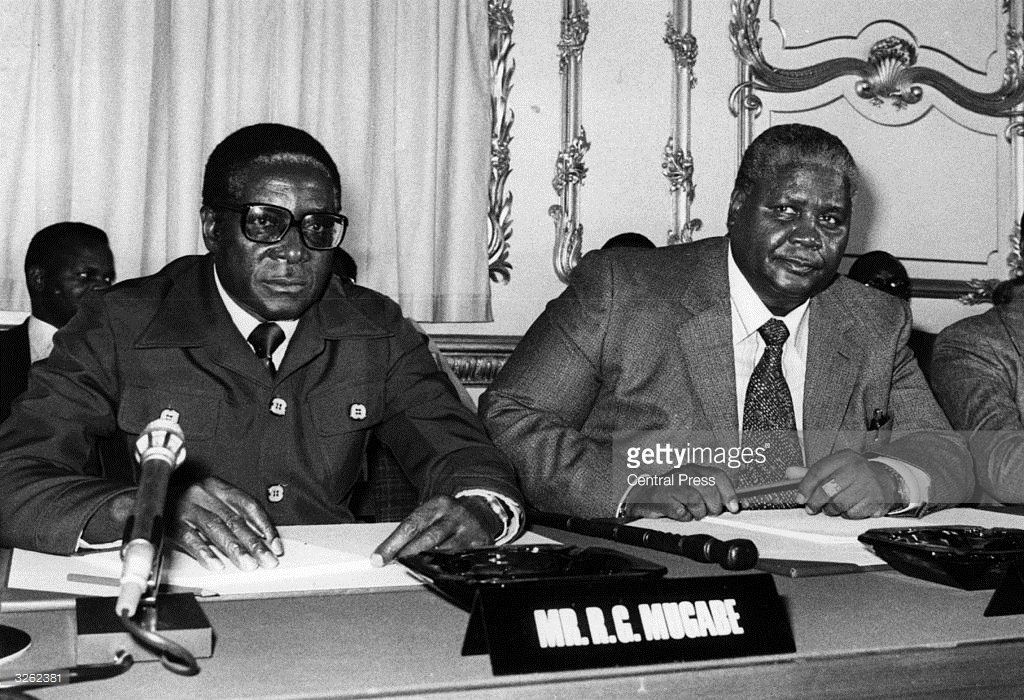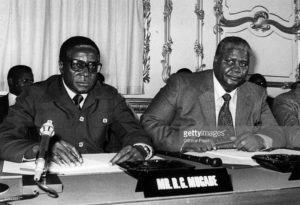
This conference opened on 10 September 1979 and was chaired by Lord Carrington, Secretary of State for Foreign and Commonwealth Affairs. It ended on 15 Dec. 1979 after forty-seven plenary sessions. All political parties involved in the Rhodesian struggle were in attendance – ZANU, ZAPU, UANC and ZUPO. The UN, US, South Africa, the Frontline states, the Commonwealth and Ian Smith’s Republican Front (RF) also attended.
This multinational representation in Lancaster represented the level of international interest and concern for Rhodesia. Each group, country or party at the conference had an interest staked to the land.
As far as the Lancaster Constitution was concerned, the main area of controversy was the land. The British position was that “all property should be protected from compulsory acquisition and that any legal acquisition required immediate and adequate compensation remittable outside the country”. This view was not shared by the other parties.
The ZANU-ZAPU coalition (known as Patriotic Front), held that the war had been waged for the recovery of last lands of the people. It therefore stressed the need for the new government to reclaim the land that had been taken from the people without compensation.
The deadlock over the land was only broken when Britain and America gave assurances about a multinational effort to assist in land, agricultural and economic programs. Based on this agreement, the British government devised a “willing-seller, willing buyer” clause as the basis of its assistance in land reforms. This clause aimed at protecting the property and interests of white farmers.
In many debates about land reforms in post-colonial Zimbabwe, the Lancaster Constitution comes to the fore especially because of its controversial “willing-seller, willing buyer” clause. Mugabe later denounced this clause, accusing white farmers of selling unproductive land.
This constitution has also been blamed for merely postponing Zimbabwe’s land crisis and not solving it, and in this process trying to safeguard white interests. According to Zimbabwean diplomat Buzwani Mothobi, Britain was trying to protect white farmers by “building into the constitution a provision requiring that land be acquired on a ‘willing-seller, willing- buyer’ basis.”


